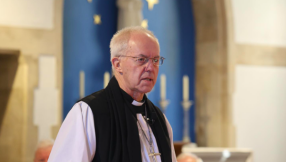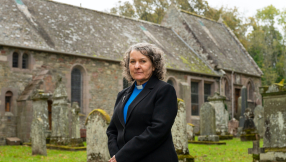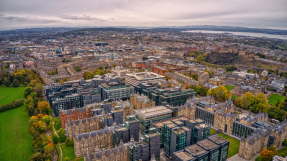
It was good to see the outgoing archbishop of Canterbury focusing on transformation this Christmas. It has always been my contention that the church should see itself as "A centre for alternative humanity".
As Dr Williams so aptly said, "The challenge of the Gospel message is not about religious defensiveness but about the possibilities of transformation."
Reflecting on the incarnation he continued, "He does not come to give us a set of techniques for keeping God happy, and he certainly doesn't come to create a harmlessly eccentric hobby for speculative minds. He comes to make humanity itself new, to create fresh possibilities."
It's for this reason we must never neglect our God-given calling to act as salt and light. Unfortunately it is all too easy to do so and to throw up our hands in defeat or even worse in some sort of pious horror when "we see things going down the tube". If Jesus is right we would do better "to put our hands together" and ask our Heavenly Father to show us why we are not proving as influential as we should be.
As the late John Stott said so perceptively on one occasion, "One can hardly blame unsalted meat for going bad. It cannot do anything else. The real question to ask is: where is the salt?"
Sadly it is all too easy for us to blend in with our culture because we have the same ambitions and values as our contemporaries. But when that happens we are of no use to God or to those we are supposed to serve; we are like salt that has lost its taste, or like a candle that has been hidden under a bucket.
Jesus expects us to assume our responsibilities as well as enjoy our blessings, which means we must be prepared to be different - not in the way we dress, nor in the way we look down on others, but to the extent that we reflect His life of grace and truth.
Because of this we should expect to be a minority. As Jesus has said there is a broad way and a narrow way and the majority will always opt for the former. This way allows for a wide diversity of opinion. It is the road of tolerance and permissiveness. There is no absolute truth on and no such thing as right and wrong. Such issues are a matter of personal choice and cultural norms. People on this road find it easy to mock traditional values and stress the need "to keep in step with the times".
This is an attractive option because it appeals to fallen human nature. It allows us to believe anything we want, and do whatever we like, as long as we don't break the law. (And if we push hard enough we might even change the law too).
We live at a time when tolerance has become something of a god but the church dare not worship at its altar. To do that would be to risk its saltiness, and cause to become untrue to its calling. For in the final analysis God's people must walk the road of transformation not accommodation.













